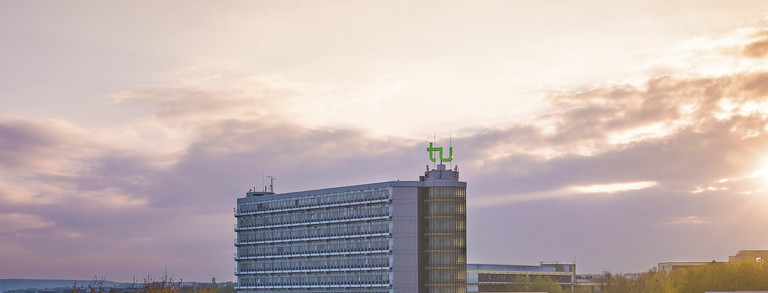TU Dortmund University Continues Scientific Exchange with Russian Partners
- Research
- Top News
- Studying & Teaching at TU Dortmund University
- Press Releases

Joint research unites scientists in the East and the West even despite politically difficult times. An example is the collaboration between TU Dortmund University and other scientific institutions in Germany with Russian partners, which received an award in September during the German-Russian Year of Higher Education Cooperation and Science.
It was born out of an idea that Frank-Walter Steinmeier, Germany’s Foreign Minister at that time and acting Federal President, had five years ago. The German-Russian Summer School (GRSS) initiative was launched. The project aims to foster academic exchange between Germany and Russia. GRSS has been held alternately in the two countries on various current energy topics with great success – the last time was in Dortmund in 2019 on the topic of “Smart Electricity and Engineering” under the leadership of Professor Christian Rehtanz. A date is already planned for August 2021 in the Russian city of Yekaterinburg. TU Dortmund University is working together with the university there.
In mid-September, the German-Russian Summer School was awarded a prize in the competition “Bridges for German-Russian Higher Education and Scientific Cooperation” – as was the German-Russian Collaborative Research Centre Transregio 160, which is one the two countries’ seven “flagship projects”. The award ceremony took place in the framework of the closing event of the German-Russian Year of Higher Education Cooperation and Science 2018-2020 at the Berlin-Brandenburg Academy of Sciences and Humanities in Berlin.
Long tradition of cooperation in science
Transregio 160 is the first German-Russian Collaborative Research Centre, which has been funded since 2015 by the Russian Foundation for Basic Research and the German Research Foundation and is planned to last 12 years. Spokesperson for the consortium is Professor Manfred Bayer from TU Dortmund University. Taking part are over 100 researchers from the Ioffe Institute and Saint Petersburg State University as well as TU Dortmund University, who are working together very successfully on coherent spin electronics for an efficient information processing of the future. The latest results of their research work have now been published in the renowned journal Nature Communications. The aim is to utilize heat normally lost in the microprocessors of electronic devices.
Since the Crimean crisis, political relations between Germany and Russia have been strained. Germany’s Foreign Office therefore considers room for dialogue and exchange, which collaborative projects create, to be all the more important. In this context, the two countries can look back on a long tradition of scientific collaboration that has shaped their relationship for 300 years: For example, the first president of the Russian Academy of Sciences founded in 1724 was physician Laurentius Blumentrost – a German. In its founding years, several dozen other countrymen and women shaped the work undertaken by the Academy, which also led the Great Northern Expedition for the exploration of Siberia and the Kamchatka Peninsula from 1733 to 1743.




![[Translate to English:] Partner Four hands are holding the green logo of TU Dortmund University](/storages/tu_website/_processed_/1/d/csm_Partner_Nicole_Rechmann_KW_40b35bb3fd.jpg)




![[Translate to English:] Forschung An apparatus with tubes in a laboratory](/storages/tu_website/_processed_/0/c/csm_Forschung_Juergen_Huhn_cbd34afd6d.jpg)
![[Translate to English:] Studium Five students are sitting in a lecture hall. They are talking to each other.](/storages/tu_website/_processed_/c/9/csm_Studium_FelixSchmale_81d94adc86.jpg)





